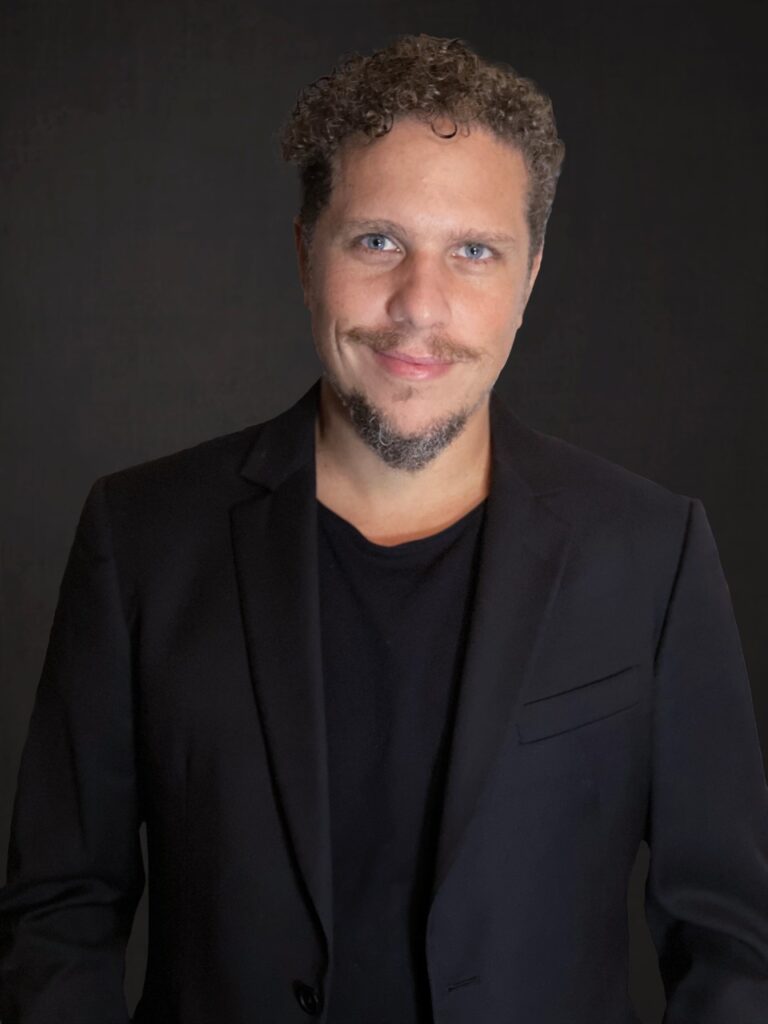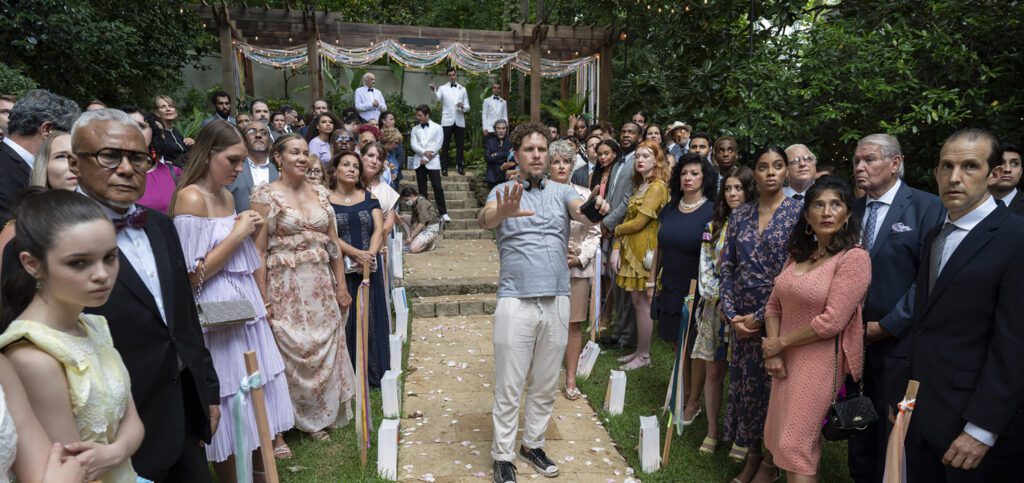March 14, 2023
Gaz Alazraki, director and Oceana Board Member, shares his passion for the seas

Gaz Alazraki is the director of HBO Max’s “Father of the Bride” (2022); writer and director of Mexico’s record-breaking comedy “Nosotros los Nobles” (2013); and the co-creator, executive producer, and director of “Club de Cuervos” (2015) — Netflix’s first original series in Spanish. He heads Alazraki Entertainment, a Mexico City-based production company focused on high-quality entertainment for audiences across Latin America and Hispanic USA.
You recently directed the film “Father of the Bride”, which was HBO Max’s biggest movie premiere to date. How was that experience?
Gaz Alazraki: The opportunity to direct Andy García and Gloria Estefan in a Warner Brothers movie produced by Brad Pitt’s production company is the sort of thing you dream about when you come to work in Hollywood.
I didn’t know what to expect, so I fell back on the fundamentals I learned from working in Mexico and found that most of those principles translated well in Hollywood. However, it was a much bigger machine and it took me a while to understand the size of the boat I was navigating.
At certain points I was intimidated by my relative experience compared to the rest of the cast and crew. But being vulnerable and sincere about my impostor syndrome led to many crew members, the cast, and Jeremy Kleiner — the film’s producer — being supportive and helping to guide me through the experience, while still allowing me to carry the weight of the leadership role. So I’m very glad I did this project because I learned more than I could have ever hoped. The end result was so positive for all of us involved. It’s the sort of experience you wish for when directing your first Hollywood film.
How did you get involved in film?
GA: I was 10 years old when my mother caught me repeating the dialogues to my favorite film (James Bond: For Your Eyes Only), and I think she felt a bit frustrated when she politely asked: “What are you going to do with all the hours you’ve wasted watching movies?” I shrugged and told her I didn’t know, so she proposed that I become a filmmaker. I didn’t even know you could do that, but she told me that my grandfather (my father’s dad), was, in fact, a filmmaker, and I could walk in his footsteps. I was exhilarated to tell my dad that I knew what I was going to be when I grew up! “What?” He asked with a big smile. “A filmmaker!” I said. His smile collapsed: “No! Your grandfather was a filmmaker, and he ruined his family! Pick something else!”
Deflated, I put it off for another 10 years, convincing myself I was going to take over my dad’s advertising business one day. But every time I was on a commercial set, something lit up inside of me. So finally, at age 19, after getting my first big laugh from an audience during a screening of my first short film at the New York Film Academy, I walked down Sixth Avenue with my brother, looking at the sunset and told him: “I’m going to do this for the rest of my life.”
I guess sometimes the strongest “Yes” is actually a “No.”

How have you incorporated important issues like saving our oceans into your films?
[Spoiler alert!]
GA: In the third act of the “Father of the Bride”, the daughter’s wedding is ruined by a hurricane that destroys the venue. This leaves the father to improvise a new version of the wedding that demonstrates his newfound skills of accepting and adapting to change.
So while we didn’t specifically dive into saving our oceans, the movie highlights the threat of climate change in creating storms so strong that they can actually take down the bridge to Star Island in Miami, which is one of the biggest cities threatened by climate change.
What originally got you interested in ocean conservation and joining Oceana’s Board of Directors?
GA: It all starts with John Varvatos. For as long as I could remember, all I ever wanted was to be successful enough to afford a John Varvatos wardrobe. I pestered their head of studio relations for years until she actually dressed me for the premiere of my first movie in Los Angeles. One day she even invited me to an event in Hollywood, where John was planning to be. I was so excited to meet him that I hopped on a plane and flew to LA, only to learn that:
A) It was NOT a fashion or a rock ‘n’ roll event in Hollywood, but an Oceana fundraiser in the Beverly Wilshire Hotel; and
B) John didn’t make it to the event! But I was seated in his actual chair when Andrew Sharpless stepped up to play a video explaining how quickly our oceans were overfished and how Oceana was using science, advocacy, grassroots, communications, and law to make a meaningful impact in many countries around the world. I felt hopeful and inspired by the existence of such an amazing organization with such an accomplished board, so when I learned that Oceana didn’t have offices in Mexico, I didn’t think twice. Even if I didn’t know anything about ocean conservation, I didn’t want to sit idly by watching the world destroy its oceans, so I did everything I could to bring Oceana to Mexico. A few years after that, I was honored to receive an invitation to join Oceana’s Board of Directors, and my life has never been the same since. So … thank you, John Varvatos!
How important is it to have a group like Oceana in Mexico fighting for more abundant and biodiverse oceans?
GA: Mexico is only one of a few countries that has coasts on both the Atlantic and Pacific oceans. With 130 million people, it’s the 10th largest nation in the world. Our oceans could be a prime source of food if they are properly managed and enforced. However, like in many other countries, our ocean laws in Mexico are weak and lack transparency. Oceana’s presence in Mexico has already resulted in getting our nation’s fishing data on Global Fishing Watch so that it’s publicly available. And we are starting to improve the laws that protect the longevity of our fisheries. Now more than ever, as energy projects seem to be aggressively developed along our coasts, it looks like we will likely have to gear up for one of our most important battles yet.
Why do you think Oceana is so successful in delivering policy victories for our oceans?
GA: The first reason is because our oceans are generous. You can see results almost immediately — at the speed of business cycles — while other conservation efforts take longer to yield results. Second, the localization of operations by country allows Oceana to win victories at a national level. But I think what sets Oceana apart is its results-based system of accountability. They set their sights on targeted campaigns that must yield tangible results in limited timeframes. And their toolkit combines the best of many other NGOs — ranging from smart legal strategies backed by science to grassroots advocacy, to visible marketing campaigns. The combination of these ingredients makes Oceana one of the most exciting NGOs out there.
If you could tell Mexico’s president to do one thing to help protect our oceans, what would it be?
GA: I would ask him to picture his grandchildren living under two possible scenarios: One is outdoors on a boat, smiling under a beautiful sunset, enjoying a day of fishing with their family. The other one is a world where the only food people can find in the empty and polluted oceans is jellyfish. Our responsibility is not only to our current society, but to the next generations as well, because we are only stewards of this planet.
The choice is simple.
This article was originally published in the Winter 2022 issue of Oceana Magazine.



